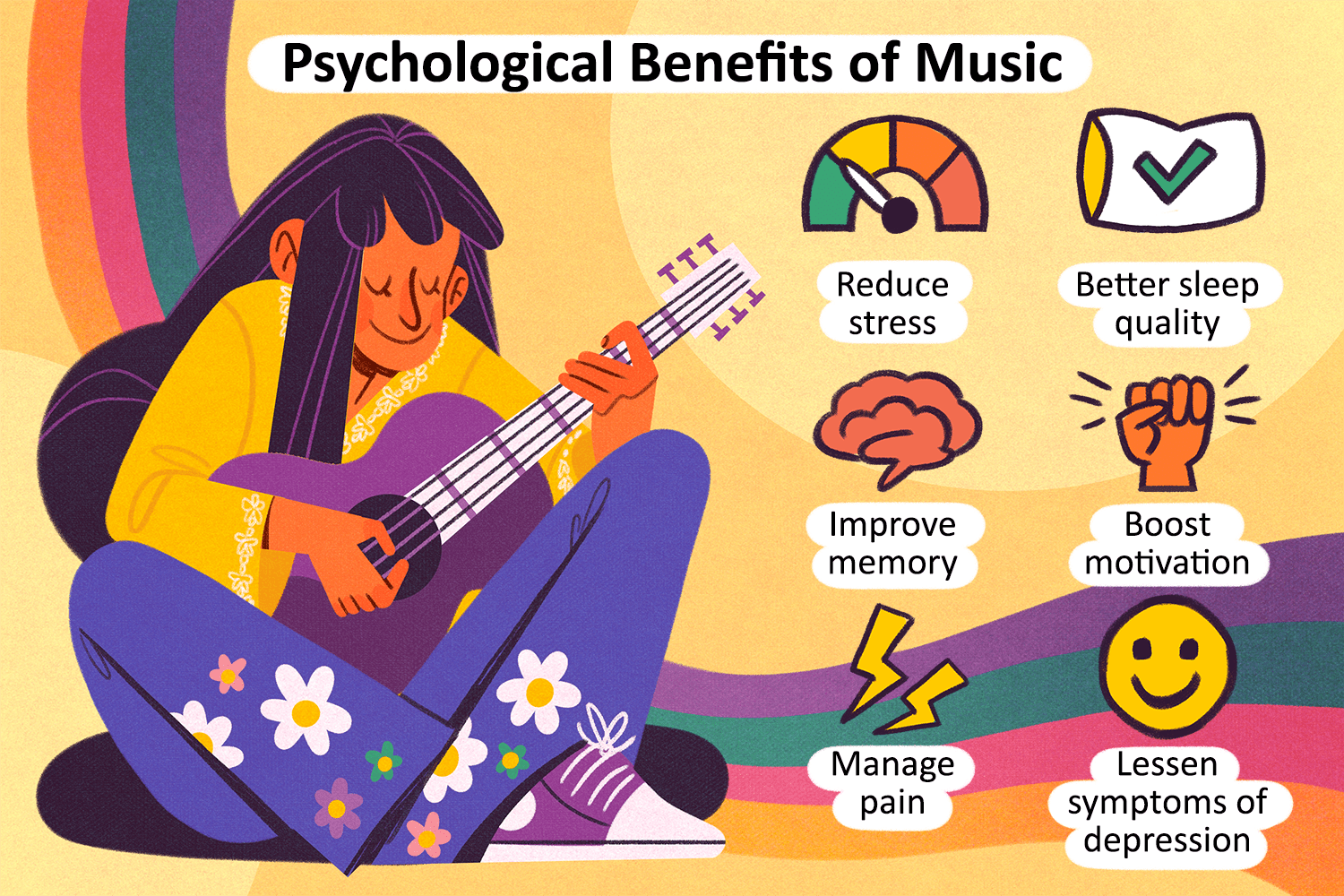

Music has been an integral part of human culture for thousands of years, and for good reason. Not only is music enjoyable to listen to, but it also has numerous psychological benefits that can positively impact our mental health and well-being. Music has always been a source of relaxation for people. From ancient times to modern-day, music has played a significant role in soothing people’s minds and helping them to relieve stress. It is widely believed that music has the power to heal people’s emotions and provide them with a calming effect.
The use of music as a source of relaxation is not new. People have been using music as a tool to calm their minds and relieve stress for centuries. In ancient times, music was used in religious ceremonies, and people believed that it had a therapeutic effect on the mind and body. Today, music therapy has become a recognized form of therapy that is used to treat various mental and physical health problems.
Music has a unique ability to evoke emotions in people. It can make people feel happy, sad, excited, or relaxed. When people listen to music that they like, it releases dopamine, a feel-good chemical, in their brain. This chemical helps to reduce stress and anxiety levels and creates a sense of well-being.
The tempo and rhythm of music can also play a significant role in its ability to relax people. Slow and soothing music, such as classical or instrumental music, can help to slow down the heart rate and breathing, leading to a feeling of relaxation. Additionally, music with a repetitive beat, such as electronic or trance music, can help to induce a meditative state, reducing stress and promoting relaxation.
Music can be used in a variety of ways to promote relaxation. One of the most common ways is to listen to music while doing other activities, such as reading, writing, or meditating. People can also listen to music before going to bed to help them fall asleep faster and have a better quality of sleep. Music can also be used in a therapeutic setting, where a trained music therapist uses music to treat a patient’s mental or physical health problems.
Here are some of the key psychological benefits of music:
- Reduces stress and anxiety: Listening to music has been shown to reduce the levels of the stress hormone cortisol in the body, which can help alleviate feelings of anxiety and promote relaxation.
- Improves mood: Music has the power to evoke strong emotions and can be used as a tool to boost mood and improve overall well-being. Listening to upbeat music can be particularly effective in this regard.
- Boosts creativity: Music can help stimulate the brain and enhance creativity, making it a great tool for artists, writers, and other creatives who need to get in the zone.
- Enhances cognitive performance: Listening to music can also enhance cognitive performance, including memory, attention, and problem-solving skills.
- Promotes social bonding: Music is a universal language that can bring people together, fostering social connections and a sense of community.
- Relieves pain: Music has been shown to have pain-relieving properties, potentially by distracting the brain from focusing on the sensation of pain.
- Supports mental health: Music therapy has been used as a tool to support individuals with mental health conditions, such as depression, anxiety, and post-traumatic stress disorder (PTSD).
Overall, music has numerous psychological benefits that can positively impact our mental health and well-being. Whether you’re listening to music to boost your mood, enhance your cognitive performance, or connect with others, there are many ways that music can enrich our lives and support our mental health.
In conclusion, music has been used as a source of relaxation for centuries, and its benefits are well-documented. Whether it is through listening to music, playing an instrument, or using it in a therapeutic setting, music has the power to calm the mind and body, reduce stress and anxiety levels, and promote a sense of well-being. Therefore, incorporating music into your daily routine can be an excellent way to improve your mental and physical health.




